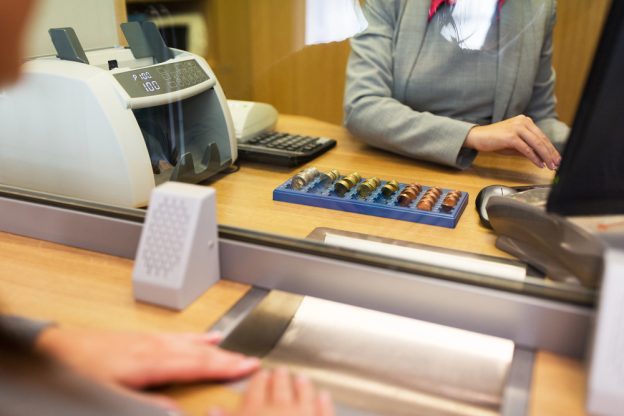Depositing a business check into your personal account might seem like a quick and easy way to access funds, especially if you’re pressed for time or convenience. However, it’s important to understand the policies, potential fees, and best practices before doing so. Explore the ins and outs of depositing a business check into a personal account, so you can make informed financial decisions and keep your finances in good standing.
Understanding the Difference: Business Checks vs. Personal Checks
Before diving into deposit policies, let’s clarify what makes a check “business” or “personal”:
- Business checks are issued by a company or organization and are tied to a company’s checking account; often featuring extra security elements, such as watermarks, microprinting, or duplicate check stubs, to protect against fraud. They’re designed for higher‐volume, higher‐value transactions and may include the company’s logo or branding. For a deep dive into styles and security options, visit our business checks.
- Personal checks are linked to individual accounts for everyday expenses like rent, utilities, or gifts. They typically have simpler formatting and fewer anti‐fraud features. If you’re curious about different layouts and customization, explore our personal checks.
Understanding these distinctions helps set realistic expectations when mixing check types at the bank.
Can You Deposit a Business Check into a Personal Account?
Bank Policies Vary
Most banks allow you to deposit a business check into a personal account, but this isn’t universal. Policies can differ based on:
- Account Terms: Some banks require you to have a business checking account if you frequently handle business transactions.
- Check Amount: High-value business checks may trigger additional review, holds, or even require that you have a business account to deposit. Large business checks often undergo additional scrutiny to verify the issuer’s funds.
- Deposit Frequency: Occasional business-check deposits are usually fine, but regular business transactions in a personal account can trigger compliance reviews or even account conversion requirements.
Tip: Always check your bank’s terms and conditions or speak to a representative to confirm their policy.
Endorsement and Deposit Methods
- Endorsement: Sign the back of the check as you would with any other deposit. If the check is made out to a business name, you may need to include “For deposit only to account of [Your Name]” along with your signature. Depending on your bank’s rules
- Mobile Deposit: Many banks allow mobile deposits via their app. Just snap a photo of the front and back (with your endorsement) and follow the prompts.
- ATM deposit: Endorse the check, insert it into an envelope if required, and follow the on-screen prompts to credit your personal account.
- In-Person Deposit: Visit a teller or ATM, endorse the check, and specify your account number and request any necessary deposit slip.
Regardless of the method, double-check that the deposit confirmation shows the correct account type.
Potential Fees and Holds
When depositing a business check into a personal account, be aware of:
- Extended Holds: Banks may place a longer hold on business checks, often up to 7 business days, before funds become available.
- Fees: Some banks charge a small fee—often $5–$15—for depositing a business check into a personal account, especially if the check issuer’s bank is out-of-network or a non-personal check.
- IRS Reporting: Large business check deposits could trigger IRS Form 1099-K reporting if you’re using services like Zelle or PayPal-connected accounts.
Best Practice: If you regularly receive business checks, consider opening a dedicated business checking account to avoid holds and fees.
Best Practices and Alternatives
- Separate your finances: Open a business checking account; this not only streamlines bookkeeping and tax time but also builds a credit history for your enterprise. Check out our full range of business checks to get started.
- Use Online Payment Platforms: Services like ACH transfers, merchant services, or payment processors (Stripe, Square) can deposit directly into your business account, often with next-day funding.
- Limit personal‐account business deposits: Reserve for emergencies only. If you must, do so sparingly and keep clear records of each transaction.
Final Takeaway
Yes, you can deposit a business check into a personal account, and many banks will process it without issue. But consider the potential holds, fees, and compliance headaches that come with mixing business and personal funds. For smooth sailing, open a dedicated business account and use only personal checks in your personal account. This separation keeps your finances transparent, compliant, and easy to manage.

